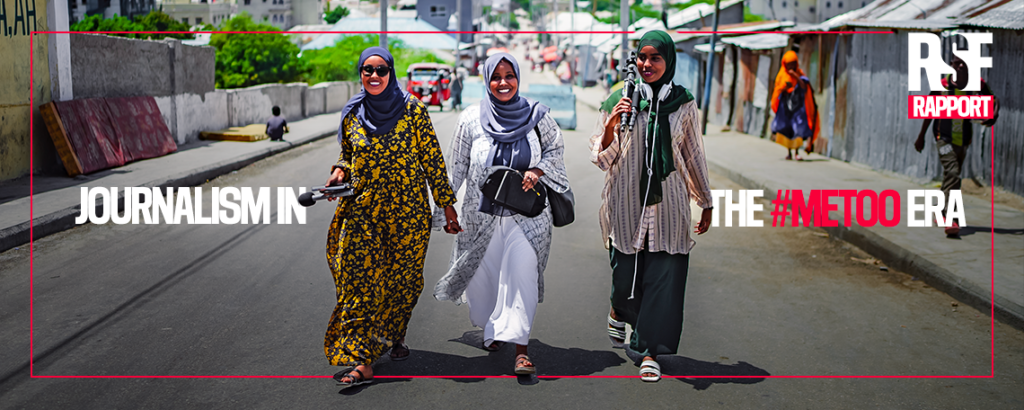The #MeToo movement has had a significant impact on the media landscape. This is revealed by the report that Reporters Without Borders (RSF) released yesterday, entitled “Journalism in the #MeToo era.”
Out of the 113 journalists surveyed in nearly the same number of countries, over 80% noted a significant increase in the number of stories covering women’s rights, gender issues, and gender-based violence since 2017, when the #MeToo slogan was born in the United States.
The slogan has since been translated into many languages and taken different names, at least 40 of which have been catalogued by RSF, such as #EuTambém in Brazil, #EnaZeda in Tunisia, #Cuéntalo in Spain, and #WoYeShi in China.
The #MeToo movement has also spurred the creation of new media outlets, changes to newsroom policies and the development of new journalist networks.
However, while investigations into women’s rights and gender-based violence appear to be taken more seriously, RSF is alarmed by the continued violent repression of the journalists who cover these issues, which includes cyber-harassment, physical attacks, and, in some countries, the risk of detention and even death. Over 25% of the survey’s respondents considered it dangerous to work on these subjects.
27% of those questioned for the report, and nearly 60% said they know at least one case of a journalist who has been subjected to cyber-harassment for covering these subjects.
Hostility is still so strong in countries with authoritarian regimes, such as Russia, that self-exile is sometimes the only option. Since the Taliban retook control in Afghanistan, women journalists have been expelled from the media or forced to flee the country.
RSF therefore calls for the adoption and reinforcement of measures to protect and guarantee independent information on gender-based violence and women’s rights, freeing journalists of any fear of repercussions. RSF’s 16 recommendations include: criminalising certain forms of cyber harassment, holding social media platforms accountable for preventing and combating these attacks, and recruiting editorial managers responsible for gender issues.



